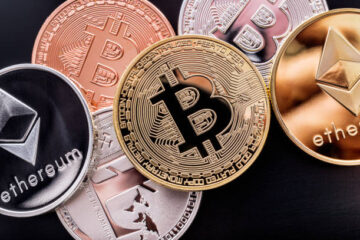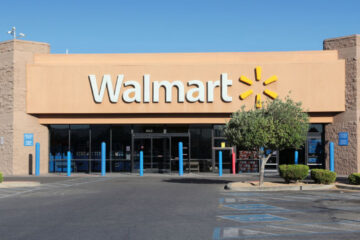Facebook is giving up on its global payment ambitions that were meant to give people the ability to trade a dollar-backed stablecoin.
Tech giant Facebook, now called Meta Platforms (FB) – Get Meta Platforms Inc. Class A Report, is ditching its embattled crypto project that was supposed to be the company’s big foray into global payments and e-commerce.
The move comes at a time when Founder and Chief Executive Mark Zuckerberg is transitioning the company away from its much-criticized social network and related family of apps and into what he calls an “embodied Internet” or the metaverse.
Facebook was working on a project to let people to use its dollar-backed stablecoin, Diem, to make transactions, after it tempered its original cryptocurrency ambitions over regulatory backlash.
But now the Menlo Park, Calif., company is selling off its technology assets that were part of its proposed virtual currency unit Diem Association to San Diego-based bank Silvergate for $200 million, according to a report by The Wall Street Journal.
Silvergate had agreed last year to partner with Diem in launching a U.S. dollar-pegged stablecoin.
Diem, which is an independent association of more than two dozen members that backed this project, declined to comment.
Libra to Diem to The End
Facebook’s announcement of its own proposed virtual currency, Libra, in June 2019 was meant to accelerate the adoption of alternative currency and payment systems, lifting the prospects of other cryptocurrencies in the process.
However, the company’s plans drew instant scrutiny from regulators including the Federal Reserve, due to various policy concerns.
“Libra raises many serious concerns regarding privacy, money laundering, consumer protection and financial stability,” Fed Chair Jerome Powell had said in July 2019.
Facebook had pitched the project for people who lack access to financial services and could use the company’s instant messaging apps WhatsApp and Messenger to send money.
Facebook also assembled Libra Association to build this global cryptocurrency-based payments network with backing from financial partners including payment giants Visa (V) – Get Visa Inc. Class A Report and Mastercard (MA) – Get Mastercard Incorporated Class A Report. The two companies eventually withdrew their support from the project.
In December 2020, Facebook rebranded Libra to Diem, which means “day” in Latin, in a renewed effort to gain regulatory approval by stressing the project’s independence.
“The original name was tied to an early iteration of the project that received a difficult reception from regulators. We have dramatically changed that proposition,” Diem Association Chief Executive Stuart Levey told Reuters.
Diem was targeted towards the launch of a single dollar-backed digital coin, also known as a stablecoin.
What is A Stablecoin?
Stablecoins are digital currencies pegged to traditional assets — national currencies like the U.S. dollar or commodities — and their rise has accelerated discussion by central banks across the world about digital versions of their currencies.
Whatever stablecoins are linked to, the effect is a less volatile cryptocurrency with greater potential to resemble the types of currencies people already use everyday.
Stablecoins are being viewed as the more stable medium of exchange, as the name suggests, rather than cryptocurrencies which are considered both risky and volatile assets.
Stablecoins are issued by companies such as Tether Operations and Circle Internet Financial and are designed to combine the ability to trade quickly online like in the case of bitcoin but with the stability of national currencies like the dollar.
It’s possible that stablecoins will become instrumental in making it easier for everyday consumers to buy things with crypto. Stablecoins were not impacted by the recent crypto crash.
Regulators are looking keenly into this space to check for vulnerabilities.
“If stablecoins are marketed with the claim that they will maintain a stable value, they may be subject to widespread redemptions and asset liquidations if investors doubt the credibility of that claim,” a Financial Stability Oversight Council report noted in December last year.
PayPal (PYPL) – Get PayPal Holdings, Inc. Report is exploring the launch of its own stablecoin as part of its cryptocurrency push, while Visa in recent months allowed a stablecoin backed by the U.S. dollar to settle a transaction with the network.


